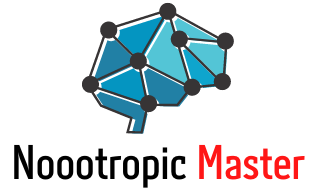
Nootropics are substances designed to enhance brain function, cognitive performance, and mental well-being. Often referred to as “smart drugs” or “cognitive enhancers,” nootropics target various aspects of brain health, including memory, focus, and mood. But did you know that some nootropics can also help boost your testosterone levels?
Testosterone is a vital hormone that plays a significant role in maintaining muscle mass, bone density, fat distribution, and mental health. Unfortunately, testosterone levels naturally decline as you age, leading to reduced energy, decreased libido, and difficulty thinking clearly. Incorporating certain nootropics into your wellness routine may offer a natural way to combat this decline, supporting optimal hormone levels and overall well-being.
This article will look into specific nootropics with proven testosterone-boosting effects and explore how they can enhance your physical and mental performance. Stay tuned as we reveal these potent compounds and what they can do for you – beyond just cognitive enhancement.
Nootropics and Testosterone
Nootropics are a class of substances that can improve cognitive function, memory, creativity, and overall brain health. They can be natural or synthetic; many use them to optimize mental performance. Testosterone, on the other hand, is a male sex hormone that plays a crucial role in the development of male reproductive tissues and promotes secondary sexual characteristics such as increased muscle and bone mass.
The connection between nootropics and testosterone lies in the potential for certain nootropics to help increase testosterone levels. This is important because higher testosterone levels can lead to improved energy, mood, and libido, as well as various other health benefits. One key factor in the relationship between nootropics and testosterone is the sex hormone-binding globulin (SHBG).
SHBG is a protein that binds to sex hormones, such as testosterone and makes them inactive. This means that when SHBG levels are high, less testosterone is available for your body to use. Some nootropics can influence SHBG and other factors related to testosterone production, potentially increasing the amount of testosterone available for your body to utilize.
For example, magnesium has been shown to inhibit SHBG, which may result in higher testosterone availability. The recommended daily dosage of magnesium for healthy males is 420mg per day. Other nootropics that may have testosterone-boosting effects include fenugreek extract and D-Aspartic acid. Fenugreek extract is a popular herbal supplement that may boost testosterone levels, while D-Aspartic acid is an amino acid that plays a role in testosterone production.
Understanding the relationship between nootropics and testosterone and their respective roles in your body can help you optimize your mental and physical health. By being aware of how certain nootropics may influence your testosterone levels and the role of SHBG, you can make more informed decisions about which nootropics could potentially benefit you.
Impact of Age on Testosterone Levels
Testosterone is an essential hormone in your body. It plays a vital role in several physiological functions, including muscle mass development, bone density, and sperm production. As you know, testosterone levels generally peak during adolescence and early adulthood. However, it’s important to be aware that your testosterone levels decline with age – this process starts to happen gradually, usually around age 30 or 40.
You may wonder what kind of impact this decline has on your overall health and well-being. Testosterone levels decline approximately 1% per year after 30 or 40 years of age. This decline in testosterone may contribute to various age-related concerns, such as changes in sexual function, physical performance, and energy levels.
In some cases, low testosterone levels could be the result of a disease called hypogonadism, rather than merely a consequence of normal aging. It’s crucial to distinguish between the two factors to ensure proper treatment if necessary. Some common symptoms of low testosterone levels include fatigue, depression, decreased libido, and erectile dysfunction.
As you age, it becomes essential to focus on maintaining a healthy lifestyle to ensure good quality of life. Lifestyle changes such as regular exercise, proper nutrition, and sufficient sleep can help support your testosterone levels. In cases where your testosterone levels are particularly low or causing significant health concerns, you and your doctor might consider testosterone replacement therapy to restore them to a more optimal range.
Remember, understanding the impact of age on your testosterone levels is essential for maintaining an active, healthy life as you go through the aging process.
Best Nootropics That Boost Testosterone
As you explore the world of nootropics, you’ll come across several compounds known for their potential to boost testosterone levels. Among these compounds, some stand out due to their effectiveness and proven benefits. Here, we’ll discuss the most promising nootropics that can help enhance your testosterone production.
Tongkat Ali is a powerful herb that has been traditionally used to increase sexual performance and stamina among men. Studies have shown that this natural extract can indeed boost testosterone and improve male fertility, making it a valuable addition to your nootropic regimen.
Ashwagandha is another popular nootropic known for its adaptogenic properties, helping your body manage stress more efficiently. Research has shown that Ashwagandha can not only enhance cognitive function but also improve testosterone levels, particularly in men experiencing stress-related issues.
Theanine is an amino acid commonly found in tea leaves and known for promoting relaxation without drowsiness. While it may not directly boost testosterone, theanine can help mitigate stress, which in turn may contribute to better hormonal balance and improved testosterone production.
Apigenin is a prominent flavonoid found in several plants, including chamomile. Studies suggest that apigenin holds the potential to increase testosterone levels by inhibiting the enzyme responsible for converting testosterone into estrogen.
One nootropic that’s worth mentioning due to its ability to regulate mood is 5-HTP. While it does not directly impact testosterone levels, it can help manage mood and reduce stress, which may indirectly contribute to a better hormonal balance.
Another potent adaptogen, Rhodiola Rosea, has been shown to improve mental and physical performance and reduce fatigue under stressful conditions. Although it may not specifically target testosterone production, Rhodiola Rosea provides overall revitalization, which can be helpful in maintaining healthy hormone levels.
Boron is a trace mineral that’s been associated with numerous health benefits, including an increase in testosterone levels. While it is not a nootropic per se, boron supplementation may provide an added boost to your testosterone production when combined with other nootropics.
Cistanche is a lesser-known herb that holds promising testosterone-boosting properties. It’s been used in traditional Chinese medicine to improve sexual function and has shown potential in increasing testosterone levels in animal studies.
Lastly, it’s important to mention the well-known cognitive enhancers Noopept and Piracetam. While these nootropics are not directly linked to testosterone boosting, they play an essential role in improving overall cognitive function and mental clarity, which can have a positive impact on one’s overall well-being.
In conclusion, incorporating these nootropics into your daily regimen can help boost your testosterone levels, improving cognitive function, mood regulation, and physical performance. Make sure to consult with a healthcare professional before starting any new supplementation program, and remember that individual results may vary.
Vitamins, Minerals and Testosterone
When it comes to maintaining healthy testosterone levels, certain vitamins and minerals are essential. Incorporating these nutrients into your diet can help support optimal hormone balance and overall well-being.
Zinc is a vital mineral that plays a key role in testosterone production. It’s found in foods such as oysters, beef, and poultry. A zinc deficiency can lead to decreased testosterone levels, so ensuring you consume enough of this mineral is crucial.
Magnesium is another essential mineral that contributes to healthy testosterone levels. It can be found in foods like almonds, spinach, and black beans. Magnesium not only aids in testosterone production but also helps improve sleep quality, which is essential for adequate hormone balance.
Vitamin D is often referred to as the sunshine vitamin, as your body produces it when exposed to sunlight. This important vitamin has been linked to increased testosterone levels when taken as a supplement. Foods such as fatty fish, egg yolks, and fortified dairy products also provide vitamin D.
Boron is a trace mineral found in small amounts in foods such as raisins, almonds, and avocados. Studies have suggested that boron supplementation can increase testosterone levels, making it worth considering if you’re working to enhance your hormonal balance.
Selenium is another trace mineral that has been associated with healthy testosterone levels. Good sources of selenium include Brazil nuts, yellowfin tuna, and sunflower seeds. Ensuring adequate intake of selenium can be beneficial to hormone production.
Incorporating these vitamins and minerals into your diet will help support healthy testosterone levels and contribute to overall well-being. Note that it’s always best to consult with a healthcare professional before starting any supplementation regimen, especially if you have existing health conditions or concerns.
Influence of Supplements and Diet on Testosterone
Your diet and the supplements you consume can significantly impact your testosterone levels. Making informed choices about your foods and supplements can help maintain healthy testosterone levels and support overall well-being.
A balanced diet is essential for supporting testosterone production. Protein plays a vital role in hormone synthesis, and consuming enough protein is crucial to maintain optimal testosterone levels. Incorporate foods rich in protein, such as lean meats, fish, beans, and legumes into your daily meals.
Certain supplements can also influence testosterone production. Amino acid supplements containing L-arginine and L-citrulline may support hormone levels, as these amino acids are involved in the synthesis of hormones like testosterone. Opting for a daily amino acid supplement can be a helpful addition to your routine.
Tea, particularly green tea, is known for its health benefits and can contribute to maintaining healthy testosterone levels. Green tea contains compounds that may inhibit enzymes responsible for testosterone degradation. Swap your coffee or energy drink for a cup of green tea to witness potential changes in your hormone levels.
Caffeine, found in coffee and energy drinks, can affect testosterone levels. While moderate caffeine intake shouldn’t harm your hormonal balance, excessive consumption may lead to imbalances. Consuming caffeine in moderation is essential to avoid potential adverse effects on testosterone production.
Similarly, high sugar intake can negatively impact hormone levels. Consuming too much sugar can lead to increased insulin secretion, leading to hormonal imbalances, including lowered testosterone. Limit your sugar intake and choose natural sweeteners such as fruits and honey if needed.
Brazil nuts are an excellent source of selenium, an essential trace element involved in testosterone synthesis. Incorporating Brazil nuts into your diet can contribute to maintaining healthy testosterone levels. However, moderation is key, as consuming too many Brazil nuts may lead to selenium toxicity.
In summary, a balanced diet and the prudent use of supplements can help support healthy testosterone levels. Prioritize natural whole foods, protein sources, and be mindful of your caffeine and sugar intake to optimize your hormone production.
The connection between Sleep, Stress and Testosterone
Adequate sleep is essential for maintaining optimal testosterone levels. Research has shown that testosterone levels are dependent on sleep, with at least 3 hours of sleep with a normal architecture required for an increase in testosterone levels. Sleep disorders, poor sleep quality, and circadian rhythm disruptions can reduce testosterone levels in men.
On the other hand, stress plays a significant role in impacting your hormonal balance. When you experience stress, your body produces cortisol, a hormone that can have adverse effects on testosterone production. High cortisol levels can inhibit testosterone production, increase food intake, weight gain, and promote the storage of harmful body fat around your organs. These changes can ultimately lead to reduced testosterone levels.
To support healthy testosterone levels, it is crucial for you to prioritize sleep and stress reduction in your daily routine. Aim for at least 7-8 hours of sleep each night and incorporate stress-reducing strategies, such as regular exercise, practicing mindfulness, or engaging in hobbies that promote relaxation. By maintaining a healthy sleep cycle and managing stress effectively, you are taking essential steps towards promoting optimal testosterone levels.
Physical Activity and Testosterone Levels
Incorporating regular physical activity into your daily routine plays a vital role in maintaining optimal testosterone levels. Different types of exercises can have varying effects on testosterone production. Let’s discuss how resistance training and cycling can contribute to increased testosterone levels.
Resistance Training
Resistance training, which includes weightlifting, bodyweight exercises, and resistance band workouts, is an excellent choice for boosting your testosterone levels. This type of training prompts muscle growth, improves overall strength, and helps your body maintain adequate testosterone production. To maximize the benefits of resistance training, it’s important to focus on compound exercises, such as squats, deadlifts, and bench presses, that engage multiple muscle groups simultaneously. It’s also essential to allow sufficient time for proper recovery and rest between sessions to prevent overstressing your body and potentially hindering testosterone production.
Cycling
Cycling can also contribute to increased testosterone levels, although it may not be as effective as resistance training. This cardiovascular exercise aids in overall fitness, weight management, and heart health, which are vital for maintaining optimal hormone levels in the body. However, excessive cycling or long-duration rides may sometimes have negative effects on testosterone levels, especially in males. Therefore, balancing your cycling routine with additional resistance training is crucial to achieve the best results for increasing testosterone levels and overall health.
In conclusion, engaging in resistance training and cycling can positively affect your testosterone levels. Remember to balance these exercises and prioritize compound movements during resistance training while maintaining proper recovery periods. By incorporating these practices into your fitness routine, you’ll be on your way to improving your testosterone levels and enjoying the benefits they bring.
Conclusion
Incorporating nootropics into your routine can positively influence your testosterone levels. The best options for boosting testosterone include Fenugreek Extract, D-Aspartic Acid, and Piracetam. Each of these supplements has been shown to improve various aspects of cognitive and sexual health.
Fenugreek Extract is a herbal supplement known for its ability to increase libido and enhance sexual performance. On the other hand, D-Aspartic Acid is an amino acid that plays a key role in testosterone production. Lastly, Piracetam contributes to mental sharpness and prevents cognitive decline, giving you an edge in maintaining your overall mental and emotional well-being.
While selecting the appropriate nootropic is essential, remember that individual results may vary. It is crucial to consult with a healthcare professional before beginning any supplementation regime, especially if you have pre-existing medical conditions.
Incorporating these nootropics into your daily life, alongside a healthy lifestyle and adequate sleep, can help you achieve optimal testosterone levels. You can enjoy improved cognitive function, mood, and overall vitality by maintaining balanced testosterone. So, explore the world of nootropics and give your well-being a natural boost!

